By: Thomas Cummings, 2019 Student Conservation Association New Hampshire AmeriCorps Member
For the past nine weeks, myself and my twenty six of my now closest friends have been teaching in elementary schools in the Manchester and Concord areas. Our lives in this short amount of time have been filled with countless adventurers to schools, designing lesson plans, and taking care of community chores around camp. Here I’d like to give you a glimpse into what an average day in our shoes—or should I say boots?—looks like.
Bzzzztttt (5 AM)
My morning alarm goes off and I carefully climb out of my bunk to get ready for the day. I try my best not to disturb any of my cabin-mates who are trying to enjoy a few more hours of sleep. Upon arriving to our main lodge, I grab a quick shower and prepare everything that I’ll need for the day. People begin to walk into the lodge and the typical chorus of “good mornings” begins; a great way to begin the day, if you ask me.

Driving to Schools (8-9AM)
With all supplies in hand, my teaching team and I make our way to one of the vehicles to drive to our schools. After completing a vehicle safety inspection, we make our way from our residence at the Spruce Pond campsite to the main road, roughly a ten minute drive. From the main road, driving times vary, since our teams teach in schools as close as Allenstown and as far as Manchester.
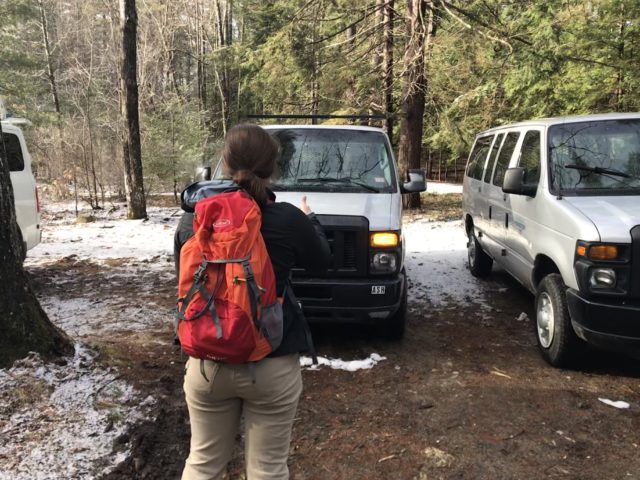
Arrival and Lessons (9AM – 2PM)
After signing in and being greeted with enthusiasm from staff, my team begins to walk down the hallway to our first classroom of the day. We hear murmurs from students and teachers: “The SCA is here!“, “What’s in their big box this week?“, and “I wonder what today’s lesson will be about“. Finally we cross the threshold of the classroom, greet the students with smiles, and begin our lesson. I imagine the feeling we get walking into a classroom is similar to how a rock star feels like walking on stage to a sold out show. For the next hour, our stage is a local elementary school classroom and our lessons are on the different earth systems, better known as the four spheres.
After School Fun (2PM – 4:30PM)
After school programs are a time for students not only to get up and be active but also to learn more about science. In these programs we tend to do more games that help teach scientific concepts in a fun way. These activities also give us, the team members, the opportunity to get involved, stretch our legs, and be a little goofy.
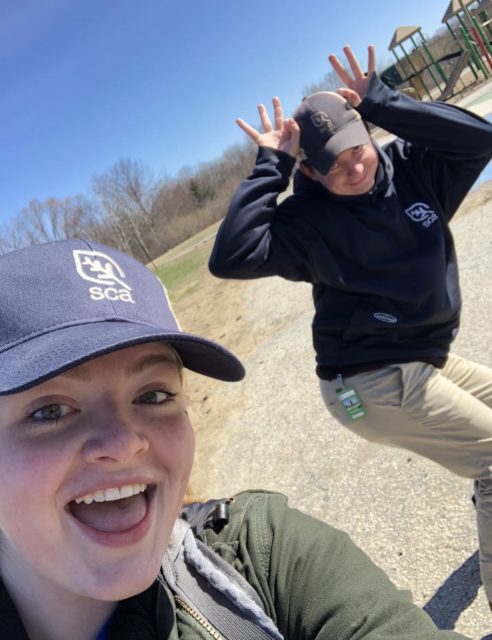
Dinner Circle and Chores (6 PM)
As per tradition, every weekday dinner begins with SCA members meeting in the main lodge and circling around the serving table where that night’s meal is placed. The teaching team(s) that did not go into school that day cook the meal for the rest of us. With arms linked, we are asked if there are any announcements we need to share with the whole community; typically these consist of an outing planned for the weekend or a reminder to clean the lodge. With the conclusion of announcements, the team that cooked describes the menu. Then we have a moment of silence together. Finally the fun part begins as a hip bump is sent around the circle in opposite directions. Whomever receives hip bumps from both directions at the same time is the person that gets to eat first!
With the conclusion of dinner cabins complete their assigned chore for the day. The chores include: cleaning the bathrooms, cleaning the dining hall, and cleaning the kitchen and any dishes for dinner. One chore not listed, because it is done through out the day is the cleaning of dishes and kitchen for both breakfast and lunch. Once your cabin’s chore is completed the evening is then yours.
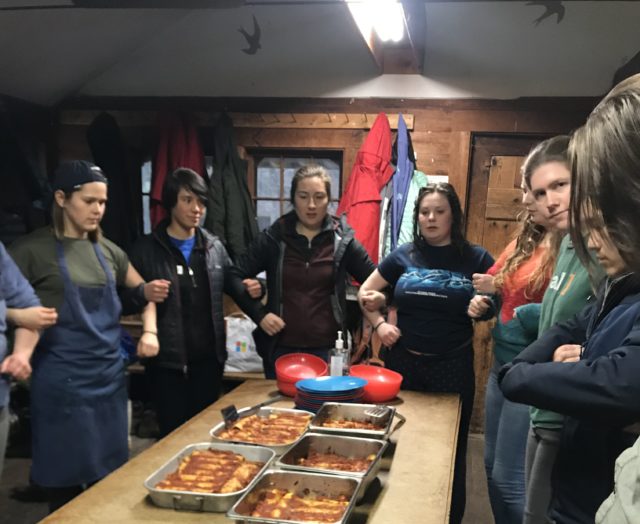
Nightlife (7pm – ???)
The remainder of our evenings is spent in different ways. I tend to head back to my cabin and start a fire in the wood stove to ensure I won’t be cold when I go to bed. I then would head back to the lodge were there is a high likelihood I’ll witness community members doing an assortment of things. One table may have a heated game of cards underway, as groans and laughs can be overheard. The couches tend to be the home of both people quietly reading as well as others telling stories about their day at school. The television will be surrounded by a group of members watching a movie or an episode of a TV show that was downloaded onto someone’s computer. As the hours pass people will begin to vacate the lodge and head off to their cabins. Others, including myself might be in the kitchen cooking food for tomorrow, or even baking a treat for the community.
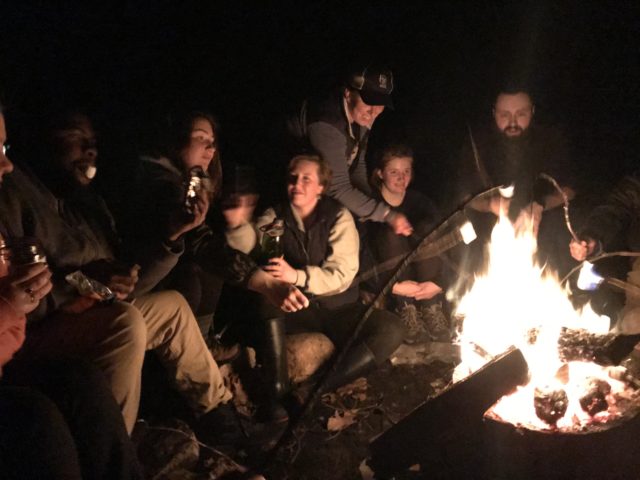
As the season begins to change so does our service as SCA New Hampshire AmeriCorps members. For all of the teaching teams, the last day we will teach in the elementary school classrooms is April 12th. Within the coming weeks the community will be training and preparing for new seasons to begin: Conservation Season for Conservation Stewards and Field Trip/ Interpretation Season for Interpretative Rangers. The Education season was a great learning experience for all of us, and we are proud to have inspired passion for science in our students.
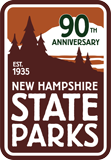
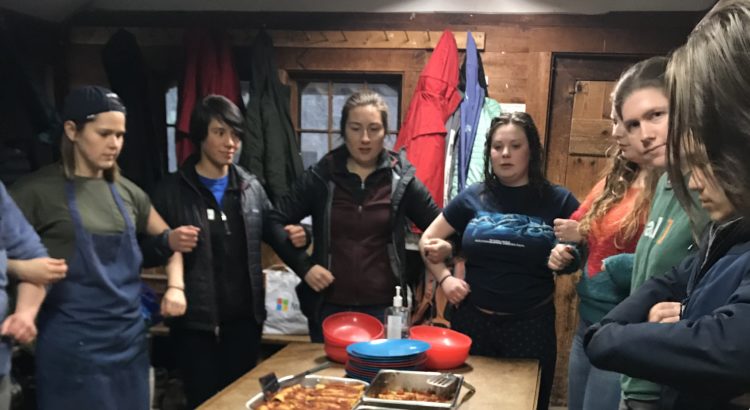
So important to inspire our next generation to love nature! Thanks for doing what you do!!
It’s great to be young and adventurous and even better to teach others to do the same!! Way to go job well done!